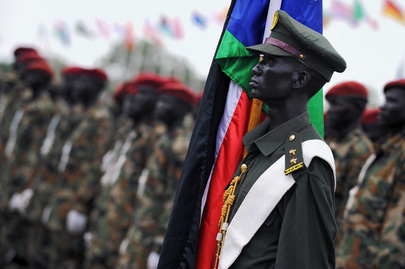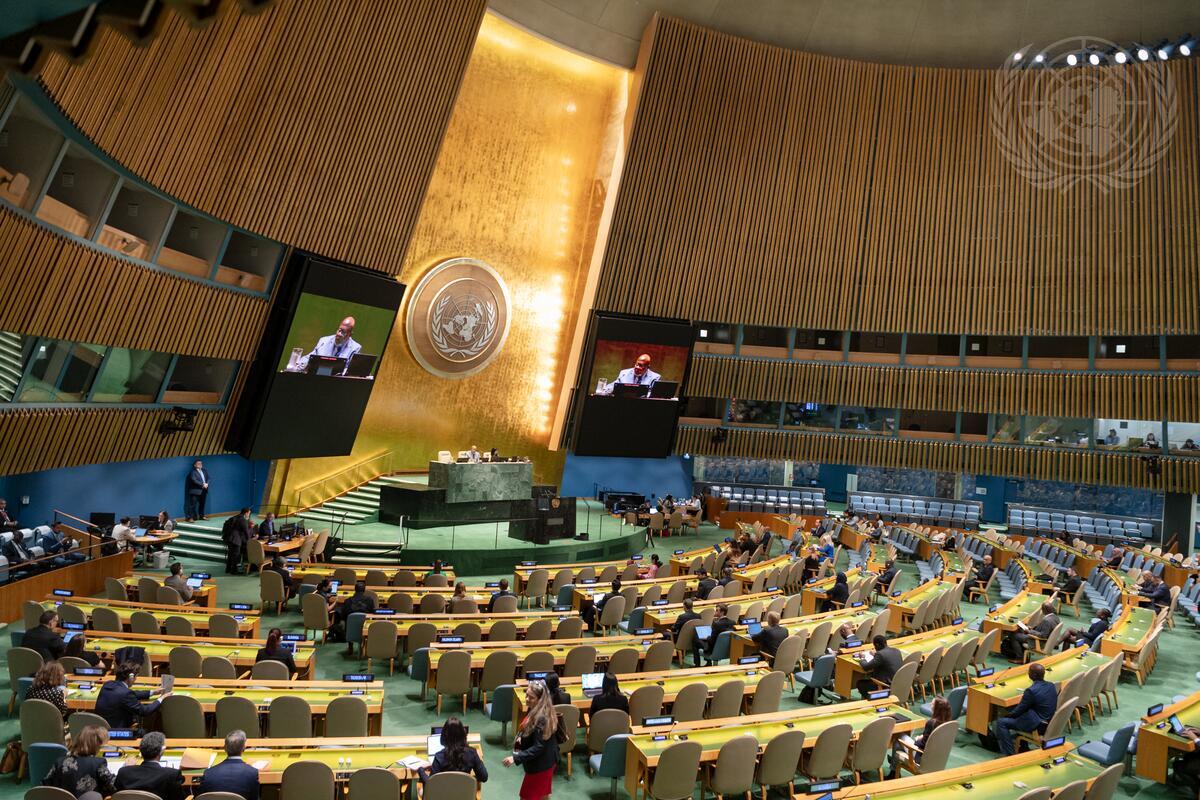
Iran: Human Rights Council must convene a special session
Fifty organisations urge the UN Human Rights Council to urgently convene a special session to address an unprecedented escalation in mass unlawful killings of protesters in Iran.

The HRC must continue to investigate human rights violations in South Sudan and hold the perpetrators accountable.
At this Session the Council will decide whether to continue to investigate violations committed in South Sudan. Failure to do so would be a dereliction of duty and a betrayal to victims. The report presented by the Commission on Human Rights in South Sudan identifies 40 senior officials who may bear individual responsibility for crimes against humanity and war crimes in the country. The cases documented in the report are shocking: the gang rape of an 85-year-old woman, forced to watch her husband and son being killed; children obliged to commit sexual violence against their own family members; elderly people hacked to death, and so on.
The dire picture of abuse in the country, for which Government security forces and affiliated groups are mainly responsible, requires the Council to continue to support the work of the Commission and extend its mandate beyond this session.
A day before the Commission released its chilling account, the UN Mission in South Sudan and the UN Human Rights Office published a joint report also highlighting severe restrictions to freedom of expression in the country, which risk compromising peace and prolonging the violence for a long time to come. The UN warns that undue restrictions on freedom of expression are having a ‘chilling effect’ and are ‘further shrinking the space for debate and dissent’ in the country, while incitement to hatred also continues to cause mistrust, fear and violence in South Sudan.
Through its investigation of incidents which took place between July 2016 and December 2017, the UN exposes the hostile environment in which human rights defenders, journalists and critics operate in the country. The report details surveillance, reprisals, criminalisation, attacks and killings which have taken place to shut down voices trying to shed light on human rights violations.
The UN found that the National Security Service (NSS), Sudan People’s Liberation Army (SPLA) and the South Sudan National Police Service (SSNPS), were responsible for two-thirds of the verified cases of human rights violations.
In order to put an end to the serious crimes being committed in South Sudan, defenders, journalists, opposition figures and citizens must be able to expose and hold the authorities to account for what is happening. The Council must continue to shed light on atrocity crimes being committed and also document the damage caused by attacks against civil society organisations that work to bring peace to the country. The Human Rights Council should echo the UN’s call for the Government of South Sudan to amend legislation to decriminalise defamation and ensure the powers given to security forces do not infringe on the legitimate exercise of the right to freedom of expression.
ISHR supports the joint statement calling for a renewal of the mandate of the Commission and adds its voice to encourage the African Union to take immediate steps to establish a Hybrid Court for South Sudan as recommended by the Commission of Inquiry on South Sudan, and provided for in the 2015 peace agreement.
Contact: Adélaïde ETONG KAME, Africa Advocacy Consultant at the International Service for Human Rights ([email protected]).
Photo: UN Gallery

Fifty organisations urge the UN Human Rights Council to urgently convene a special session to address an unprecedented escalation in mass unlawful killings of protesters in Iran.

The Escazú Ahora Chile Foundation, the Protege los Molles Foundation and ISHR demand that the investigation, arrest and legal proceedings involving Julia Chuñil's relatives be conducted in accordance with international standards of due process.

At a time of financial strife and ongoing reform for the organisation, States have adopted a 2026 budget cutting 117 jobs at the UN’s Human Rights Office. The final budget endorses proposed cuts that disproportionately target human rights, imperilling the UN’s ability to investigate grave abuses, and advance human rights globally.